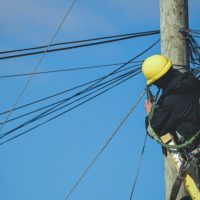Enterprising families need to take time to reflect on their greater purpose before setting up a family office and above all should avoid being rushed into decisions by financial institutions looking to sell their services.
More and more business-owning families find themselves sitting on a pile of cash following a liquidity event such as a total or partial sale of a business and, particularly in the current high-inflation environment, feel under pressure to start deploying their capital. They then often fall prey to financial advisors and banks offering their services and see a family office as the quickest solution.
However, “setting up a family office in a rush is a sure way to destroy legacy wealth. Instead, families should take a step back and think about their purpose and how a family office can help them achieve this”, Professor of Family Business and Entrepreneurship Peter Vogel said in a Digital Dialogue webinar with IMD Honorary President Peter Lorange on approaches to setting up a family office.
Lorange said this was very much his experience, too, when he sold his shipping company S. Ugelstad and established his family office, quickly being faced with a large array of approaches from people with investment ideas and banks offering their services. “I felt that the money was burning a hole in my pocket and we made at least two big mistakes, which we were able to rectify to some extent later, but it took us a few confusing years before we actually found our way,” he said.
The family office, S. Ugelstad Invest, has now developed a successful portfolio of around 40 investments in five areas. The family office is managed by Lorange himself and his son and son-in-law, who are each responsible for different types of investments. It has a lean structure, paying for services when needed rather than employing people in house, and its investments are mostly minority holdings, so it avoids the headaches that come from directly employing hundreds of people, he said.
The number of family offices around the world is expanding due to growing global wealth and a rise in the number of wealthy families, particularly in Asia. Many see setting up a family office as a solution to the increasing complexity of their family enterprises and investments, and for a few there is a certain glamour to having a family office.
Liquidity events such as the sale of a business or a build-up of dividend income are the most common reasons why families consider setting up a family office, but a host of other factors can also play a part, such as the desire for more tailored services.
Having a family office can certainly make it easier to manage total family wealth, but a family office may not be the right solution for all families. As it is widely stated: if you’ve seen one family office, you’ve seen one family office. It is therefore of critical importance that families carefully consider their status quo and future aspirations before making any decisions about a family office. There is no prototype for the family office. They come in all shapes and sizes, but in recent years we have seen the emergence of a new type of family office through an ecosystem approach in which the needs of the family are served by a network of providers rather than the family office performing all functions itself. We are therefore starting to see an “Uberization” of the family office.
“For a family office to be successful, it is important that the family itself is in the driving seat, and also that all family members are involved in discussions on its purpose, risk profile, and financial and non-financial objectives”, Vogel said. Lorange confirmed this by saying that family members involved in his family office are bound together by a “common glue” which means that investment and disinvestment decisions are only made when all of them agree, and family members of all generations meet twice a year to discuss the progress of the family office. “I think it is important that they understand from day one that they are part of this thing,” he said.








